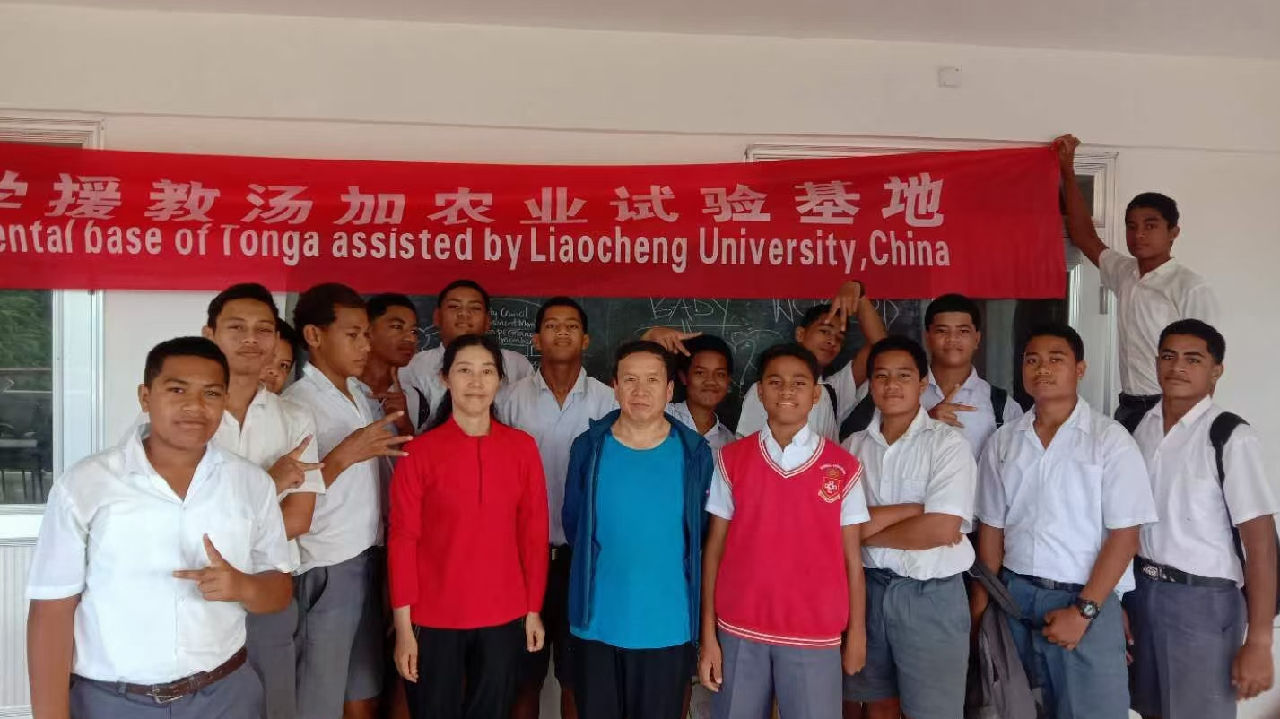Chinese Agronomy Teacher Shares Experience in Tonga and Announces Plans to Return
Chinese agronomy teacher shares transformative experience in Tonga, plans to return to continue fostering agricultural development


“When we first arrived at Tonga College in 2020, the school lacked agricultural facilities and equipment. Students had to carry buckets to water the vegetables,” recounted Ren Aizhi, a teacher from the College of Agronomy at Liaocheng University. Reflecting on her time in the South Pacific nation, Ren described how resource constraints initially made teaching difficult. However, by 2021, their efforts were amplified by the successful application for the Ambassador Fund from the Chinese Embassy in Tonga.
With this crucial support, the school was able to construct solar-powered water wells and storage towers, and acquire necessary farming tools such as weeders. The installation of drip irrigation systems and advanced water-fertilizer integration technologies marked a turning point. “Now, agricultural production has improved significantly,” said Ren. In addition, upgrades like multimedia teaching equipment and practical farming materials allowed students to access modern agricultural technology and improve their hands-on skills.
The China-Tonga educational exchange was formalized in March 2018 during King Tupou VI's visit to China, resulting in a memorandum of understanding between both nations’ ministries of education. Based on Tonga’s needs, the agreement brought Chinese teachers to the islands. In 2019, Liaocheng University responded by dispatching two groups of seven specialized teachers—including Ren—who taught both Chinese language and agricultural sciences, blending theory with much-needed practical training.
“At first, some students lacked motivation,” Ren admitted, “so we explored ways to make the classes more engaging.” Over time, she observed a change: students became increasingly interested in what they dubbed the “Chinese teachers’ vegetable garden.” The harvested vegetables were shared widely—among faculty, the school cafeteria, and even with Tonga’s Ministry of Education. Occasionally, students would take produce home, a source of pride and enjoyment for their families.
Over three years, nearly 300 students have received systematic agricultural training, with about 50 participating each semester. This practical education is leaving a lasting mark; in 2021, the Palace Office of the Kingdom of Tonga formally thanked the teachers for their contributions. In a letter relaying King Tupou VI’s gratitude for a gift of corn, the office praised the generosity and skill of the Chinese Agriculture Expert Team.
Ren’s connection with Tonga continues to deepen. She is scheduled to return in August, this time leading a team focused on research and demonstration of breeding technologies. The group plans to conduct agricultural technology exchanges and provide short-term training sessions for local teachers and students. “We’ll also provide a batch of agricultural machinery—including tractors, rotary plows, cassava planters, and harvesters—as well as materials for building seedling sheds,” she shared enthusiastically, expressing how much she misses the students, the people, and the scenic sea of Tonga.
The collaboration stands as a testament to the impact of international educational partnerships, as Tongan students and institutions continue to benefit from expanded agricultural expertise and resources.




